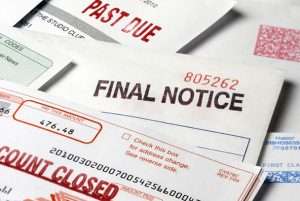A charge off can be a nasty mark on your credit report, dragging down your score and making it difficult to qualify for loans or even rent an apartment. There are ways to deal with a charge-off, and even remove it from your report. This article will explain what charge-offs are, how they impact your credit, and the different strategies you can use to get them removed.
What Are Charge-Offs?
When you miss payments on a credit card, loan, or other line of credit for an extended period, your creditor may eventually give up on collecting the debt. They write off the balance as a loss on their books, and this is reflected on your credit report as a charge-off. It’s essentially a public record stating that you defaulted on the debt.
How Do They Impact Credit Scores?
Charge-offs are bad news for your credit score. They can bring your score down significantly, depending on the severity of the debt and your overall credit history. A lower credit score translates to higher interest rates on loans, difficulty qualifying for credit cards, and even getting rejected for apartment rentals.
The good news is that charge-offs don’t last forever. They typically remain on your credit report for seven years from the date of the last activity on the account. However, even after they fall off automatically, the negative impact on your score might linger for a while.
How to Remove Charge-Offs From Your Credit Report After 7 Years
After seven years, charge-offs are automatically removed from your credit reports by law. There’s nothing you need to do to initiate this process. However, you can expedite the process of having negative information reflected more accurately by:
- Monitoring Your Credit Reports Regularly: You’re entitled to a free credit report from each of the three major credit bureaus (Experian, Equifax, and TransUnion) every year. Check them regularly for any errors or inaccuracies, including the date of the last activity on a charge-off.
- Disputing Errors: If you find any mistakes on your credit report, such as an incorrect date or amount on the charge-off, file a dispute with the credit bureau and the creditor that reported it.

How to Remove Charge-Offs From Your Credit Report Yourself
There are a few proactive strategies you can employ to try and remove a charge-off from your credit report before the seven years are up:
- Pay for Delete: Negotiate with the creditor or debt collector to remove the charge-off in exchange for full payment of the debt. This is a risky tactic, as you’re essentially admitting the debt is valid before it’s removed from your report. Get everything in writing before sending any payment.
- Goodwill Removal: Write a goodwill letter to the creditor explaining the circumstances that led to the charge-off and requesting its removal as a one-time courtesy. This is a long shot, but it might work, especially for extenuating circumstances or if you have a long history with the creditor.
- Dispute Inaccurate Information: As mentioned earlier, if there are any errors in the details of the charge-off, you can dispute them with the credit bureau. This could include the date of delinquency, the amount owed, or even your name or address. If the creditor can’t verify the information within 30 days, the credit bureau is obligated to remove the entire entry.
While these strategies can be effective, there’s no guaranteed way to remove a legitimate charge-off from your credit report before the seven-year mark.
Additional Tips for Improving Your Credit
While you tackle the charge-off, remember to focus on rebuilding your credit score:
- Make On-Time Payments: This is the single most important factor in improving your credit score. Pay all your bills on time, every time.
- Keep Credit Card Utilization Low: Aim to keep your credit card balances below 30% of your credit limit.
- Don’t Apply for Too Much Credit: Applying for multiple lines of credit in a short period can negatively impact your score.
- Consider Credit Repair Services: If you’re struggling to manage your credit on your own, consider seeking help from a reputable credit repair service. However, be careful of companies that make unrealistic promises.
Polosploits: Best Credit Repair Services
Understanding how to improve your credit score can be confusing at first, but you don’t have to do it by yourself. Polosploits boosts your credit score improvement strategy by offering valuable tools and expertise
This service offers a comprehensive approach to credit score management. Here’s how Polosploits can empower you:
- Credit Report Analysis: Polosploits can help you get your credit reports. Their team can analyze your reports, identifying errors that might be negatively impacting your score. They can guide you through the dispute process to ensure accurate credit reporting.
- Personalized Action Plan: Based on your credit report and financial goals, Polosploits can create a personalized action plan. This plan outlines specific steps you can take to improve your credit score over time.
- Expert Guidance: The Polosploits team offers valuable guidance and support throughout your credit score journey. They can answer your questions, address concerns, and keep you motivated as you work towards your credit score goals.
While you can tackle credit repair yourself, there are situations where getting professional help might be beneficial:
- Complex Credit History: If your credit report contains multiple errors or involves identity theft, a credit repair service can help navigate the complexities of the dispute process.
- Time Constraints: If you’re short on time to manage your credit repair, a reputable credit repair service can take care of the legwork.
Choosing a Credit Repair Service
- Do your research: Look for companies with a good reputation and avoid those making unrealistic promises.
- Beware of upfront fees: Legitimate credit repair services typically charge a monthly fee after an initial consultation.
- Understand the contract: Ensure you understand the terms of service before signing any contracts.
Dealing with a charge-off can be stressful, but with the right approach and a commitment to responsible credit habits, you can overcome this hurdle and improve your credit health.




One comment
[…] Charge-offs: If a debt is deemed uncollectible by a creditor, it might be charged off. This seriously harms your score. […]
Comments are closed.